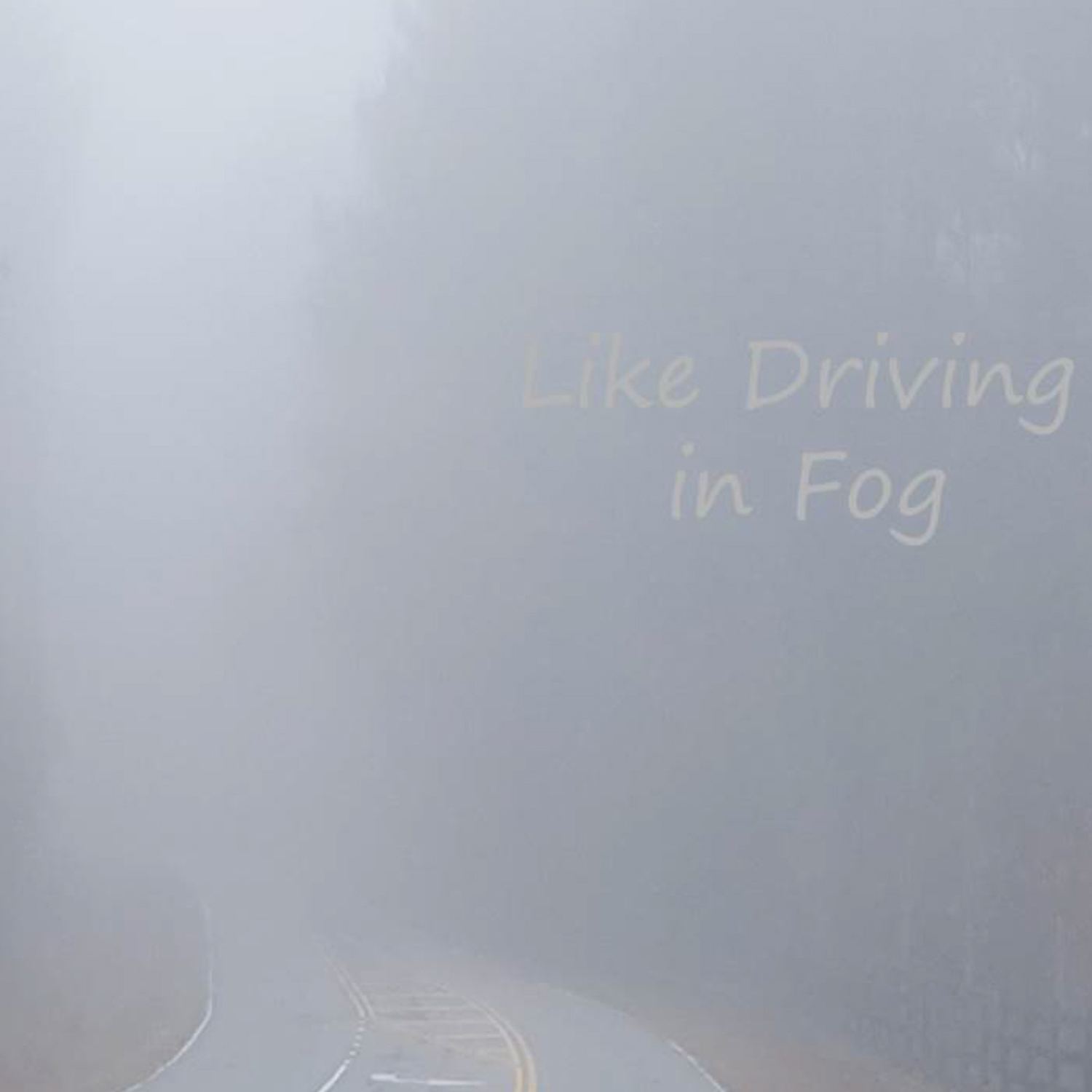Episodes
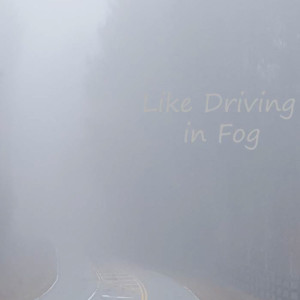
Sunday Dec 23, 2018
24 - There is Always Hope
Sunday Dec 23, 2018
Sunday Dec 23, 2018
Dedicated to Jeff, JP, Bill & Reed, and to everyone else who's just trying to hang on a little bit longer.
TRANSCRIPT
Hi, and welcome to another episode of lessons from life. Remember, on January 1st we are changing our name to Like Driving in Fog: an Emotional Healing Podcast. I’m Mary Young, and I’m so glad you’re listening to us today. Yesterday, 22 December, we talked about how sometimes there are no answers. And I went to bed last night still thinking about that, and thinking I can’t just leave it at that. It’s true that sometimes there are no answers, but even when we don’t have answers, we have hope.
There is always hope.
You can’t always see it. Sometimes it’s hard to believe in it. But just like no matter how dark the night is the sun comes up again the next morning; just like an eclipse has to end and the sun comes back out from whatever was hiding it; hope is the same way. You can’t always see it, but it’s always there. And if you can wrap your head around that, if you can wrap your heart around that, it helps you hang on.
And you guys, I’m not just blowing smoke. I would not stand here in front of this microphone and say stuff just because it sounds good, because that’s not me. I’ve had people say stuff to me just because it sounds good. It didn’t help.
What I am sharing is what I have learned from my own emotional healing journey. I said it yesterday; I’ll say it again. I have never been depressed to the point of being actively suicidal, but I have been hopeless. I have been through emotional healing that I didn’t think was ever to happen. I have had nights where I curled up in my bed and cried, or went to the shower and cried until the hot water was gone, and my arms and legs were cramping because I had cried so much. There were times when I didn’t think it would ever get any better, and I would just be trapped, and I would just always be miserable.
But I was wrong.
It did get better. I’m not trapped, and I’m not miserable. I kept holding on to hope. I kept looking to other people who had been through the same process, who were going through the same process, who were experiencing the same shit. And I went to them for wisdom and advice. I had friends who could help me see the stars when all I could see was a black night. I had friends who could rekindle that spark in me when the world around that had blown it out. I had friends who weren’t afraid to sit with me in the dark instead of trying to tell me where the light switch was. And I had two very good therapists. healing partners are essential. Whether that healing partner is a friend, a talk therapist, a massage therapist...you need somebody. We all need somebody, Not just to listen to us. We all need somebody. We can’t do this alone. if you go back to the concept of driving in fog, and that first foggy trip that I took when I was 21, driving home from the movie theater in northern Indiana. if I had not had a friend making that trip with me, I don’t know what the outcome might’ve been. I might’ve decided to stop and sleep by the side of the road. But I had somebody in the car with me to encourage me, to help me find the road, to help me stay on the road, once we found it. It made a difference.
This healing journey that I’ve been on has had a lot of foggy days. There’s been a lot of times when I just didn’t know what I was supposed to do next. Didn’t know what I was seeing. didn’t know if anything was ever going to change, if I would ever stop crying, if I would ever be somebody that I can like, if the flashbacks or whatever stop, if I would ever stop having panic attacks.
But I had healing partners, and I had friends, and between them, they helped me remember that hope is always there. I said it yesterday, I’ll say it again. Sometimes the only thing you can do is stubbornly hang on.
Hang on to this too shall pass.
Hang on to there is always hope. I don’t feel it right now, but it’s there.
And when you can’t hang on anymore, I hope you have a friend that you can go to and say hey, I’m having a hard time hanging on to hope. Can you help me?
It’s hard.
It’s hard to reach out to a friend and say I need help. It’s hard to reach out to a friend and say this is more than I can handle. It was hard to admit that I needed to see a therapist, and then oh my God, it was hard to go. And nobody tells you how hard it is to go to the therapist. Nobody tells you how hard it is to keep going back, and to look at things that are painful. But I will tell you this. If I had not kept going back, if I had not looked at the stuff that hurt and started processing it, I would not be the person I am today.
And I really like the person I am today. I like the stability I have. I like the resilience I have. I like the fact that I’m more interested in encouraging other people. I like the fact that I’m brave enough to do a podcast. none of that would have happened if I had not been stubborn 25 years ago, and stubbornly kept insisting: the only way out is through; I can do this; there’s always hope.
Personally, I had a three-part mantra for those nights when I was afraid to close my eyes because I didn’t know what kind of nightmare I would have, and I didn’t want to wake up scared so I thought I would just try to stay awake all night. I had three things that I clung to. Yours will be different because we’re not the same people. For me, it was: God is good. God loves me. Somebody is praying for me. And every time I would do that, I would replace the word somebody with a particular name. Katie is praying for me. Barb is praying for me. Karen is praying for me. Rachel is praying for me. Alice is praying for me. Because I know my friends, and I knew, I knew, that they were praying for me. You can have a different mantra, but one of the best things you can put in that mantra: There is always hope. This too shall pass.
You have to get miserable before you can get better. I hate the fact that that’s a reality, but the bottom line is you will not change until being who you are is too uncomfortable. I didn’t change until it reached the point where I was depressed all the time, until it reached the point where I was having nightmares and panic attacks, and it was starting to interfere with my ability to function in my daytime world. And to do what I needed to do for my jobs, I knew something had to change. And that something had to be me.
I want to wave a magic wand and make everything all better. I don’t want there to ever be another Reed or another Bill or another Jeff or another JP, but I don’t have that power. All I have is my story, to let you know this is what I went through, and this is how I got through it.
I got through it by being stubborn.
I got through it by reminding myself over and over and over, it’s not always going to be this way.
and you feel like your lyin’ when you say that, because really it’s the only way it’s been for what feels like my entire life, how can it not always be this way.
I’ve proven it to myself. I am not the person I was 30 years ago. I don’t have the flashbacks and the panic attacks, the nightmares. I don’t have those depressions. I don’t have those trigger incidents like I used to. My resilience is not something that I occasionally notice. It’s part of who I am, because I was able to hang on.
And I’ve gotta be honest with you. As I say this stuff, I feel like I am shortchanging, or judging or criticizing those people who were not able to hang on, and that is not my intent. JP, Jeff, Bill, Reed...they did the absolute best they knew how to do. They held on for as long as they could, and there comes a time when you just can’t. And if there’s nobody around to catch you when you fall, then you fall. I hope we all have somebody to catch us when we fall. I would not still be here if people had not caught me when I fell.
Like I said last night, I don’t have any answers for this, and I’m out of words. But I care, and I wish I could wave a magic wand to help you hang on, because others care too. About you.
Because you are worth caring about. And you are worth healing. So please hang in there, just a little longer. Everything changes, and hope is always there, even when we can’t see it.

Saturday Dec 22, 2018
23 - Sometimes There are No Answers
Saturday Dec 22, 2018
Saturday Dec 22, 2018
Dedicated to Jeff, JP, Bill, Reed, and all the others who couldn't find the answers they needed. And to all those who are still searching for answers.
TRANSCRIPT
Hi, it’s Mary Young, and currently the Lessons from Life podcast. In another 10 days, the name is changing to Like Driving in Fog: an Emotional Healing Podcast.
It’s December 22 as I record this podcast. I just came back from serving at my church’s Christmas services. I had planned that this week’s podcast would be continuing along those lines of having boundaries, or Christmas -- not going home for Christmas, taking care of you for Christmas, and then life intruded.
One of the people that came tonight is a friend who lives far enough away that she does not usually attend my church. She has her own home church closer to home, but her family was there tonight. Because her family goes to this church, because they live over this way. And they were there because...tragedy.
And the holiday seasons are full of tragedy, and we don’t think about it unless it happens to us. That may not be true for everybody, but it’s true for a lot of people. All holidays are happy happy joy joy, and it doesn’t occur to us that for other people the holidays can be sad. Lonely. Bittersweet.
I still remember 15 years ago, having Christmas with my family two weeks after my mother passed away, one week after her funeral. It was not a Merry Christmas that year. And this friend that I saw tonight, this family that came tonight, will be having Christmas less than a week after losing a very young family member. And there is nothing merry about that. I had another friend who told me one time she woke up in the hospital, in the recovery room after her miscarriage, and the room was decorated for Christmas. And she just looked at the decorations on the wall and thought how can I be happy. So I’m asking you: please think about other people this Christmas season. Bear in mind that not everybody sees this as a season of joy.
For a lot of people it is bittersweet. You may be that person for whom it is bittersweet, or just flat out sad, or it just flat-out sucks. And I just want you to know: it’s okay to be sad at Christmas time. Don’t feel like you have to put on a mask for the rest of us.
Own your feelings.
Let yourself feel.
If Christmas is a time of grief for you, then let yourself grieve.
Grief doesn’t go away if you bury it. It only goes away, or becomes manageable, if you feel it. If you let yourself acknowledge it, and experience it. That’s true of most emotions actually.
So this Christmas, if a friend of your says yeah I’m just not really in the Christmas spirit, don’t try to jolly them into it. Respect where they are. Let them be where they are, and just sit with them. One of the best things a friend ever said to me was: sometimes when you’re sitting alone in the dark; you don’t want people to tell you where the light switch is. You know where the light switch is; you just want somebody to sit with you in t9he dark for a while.
If you have a friend that just needs somebody to sit with them, not trying to fix them, not trying to jolly them out of anything, not pointing out where the light switch is so you can bring some light into the room, be that person. And sit with them in the dark, so they know they’re not alone.
If you are that person wishing somebody could sit there with you in the darkness, don’t give up. I know sometimes things look like they will never get better. Things look like they will never change.
Everything changes. It’s the one great law of life. Everything changes. This too shall pass. If you can just hold on, and I know sometimes you can’t hold on... I know that. And I don’t have an answer for that.
Everything that’s in my mind wants to come around and tell people just hold a little tighter. Just reach out and call somebody. But if you are in the throes of depression, that’s the hardest thing in the world for you to do.
And maybe the answer is to just keep repeating to yourself this too shall pass. I’m not alone. There is a way out. I don’t know. I have never been depressed to the point of being actively suicidal, so I don’t know what that feels like.
I do know what it feels like for the people that are left behind. I know the confusion, and the anger, and the sorrow in the decades of loss though. Every year thinking: this year he would’ve been X years old. Every year thinking: this was the day that I lost him. I know that stuff, and I know that for people who are deeply depressed, it’s not even registering on their radar.
You know, I usually try in these podcasts to have some kind of uplifting, encouraging something, and tonight all I have is sadness and sorrow because a friend’s family is hurting. Because they lost a loved one way too young, way too soon, and it reminds me of all the other loved ones who’ve been gone too soon. Whether through miscarriage, through childhood leukemia, through crib death, or through suicide, there’s a lot of pain in the world. I don’t want to make light of that.
And healing through that pain is hard. It’s possible, but it’s hard. But please remember: you are not alone. I know it feels like you are, but you’re not. And even people that are not in the same room, not in the same state, not in the same country, can still be there for you. Over the Internet. Over the telephone, especially now with Skype and FaceTime, things like that. But even over the Internet.
That’s all that kept me going back in the 90s. there were nights where I would spend hours with online chat, talking to somebody because the memories were killing me, and the flashbacks were killing me, and I didn’t know what to do, and I didn’t know who I could talk to, and everybody in my time zone was asleep and wouldn’t understand. anyway there are people who understand, and I realize that when you’re in the deep throes of depression reaching out to somebody takes way more energy than you have, and that’s one of those things I don’t have an answer for.
I just have a hope, and a prayer, that nobody has to sit in the darkness alone, and that everybody can find the strength to reach out and ask for help.
I don’t have any more words tonight. Thank you for listening.

Monday Dec 17, 2018
22 - Wrap Yourself in Boundaries this Christmas
Monday Dec 17, 2018
Monday Dec 17, 2018
TRANSCRIPT
As a reminder: on January 1, we are changing the name of the podcast to Like Driving in Fog -- an Emotional Healing Podcast. I’m Mary Young, and I’m so glad you joined us again today.
If you listened to last week’s podcast, we were talking about not going home for the holidays. You know, everybody makes a big deal -- it’s the happiest time of the year! Home is the only place to be! But for a lot of people home is toxic, and they feel guilty about not going home, or not wanting to go home. So I talked last week about it’s okay to not go home for the holidays, and maybe you need to build some new holiday traditions.
However I also said if you do go home, wrap yourself in boundaries and so I wanted to touch on that this week. What are boundaries? Are you sure I’m allowed to have them? And how the heck do I have boundaries around my family, and how do I honor those boundaries?
I gotta be honest with you -- I was 38, maybe 40, before I ever realized that it was okay for me to have boundaries. We don’t have boundaries in my family. In fact, one of my mom’s favorite sayings was what’s yours is mine and what’s mine’s my own. If it belonged to anybody in the family, it belonged all of us. That concept of private ownership among family members just didn’t really exist. If you had something and another family member needed it, you were supposed to share. Or maybe even to give. If that’s the kind of family you come, from then going home for the holidays just means going back into that situation.
I used to tell people: you know, it doesn’t matter how old I am; it doesn’t matter how successful I am in my life. When I go home I am 12 years old again. That’s how they all see me and that’s how they’ll treat me. And I just gotta tell you, that is not comfortable. That is not how I want to be seen or treated. I want to be seen or treated as the successful woman that I am; as the age that I am; as the adult that I am. And that’s the kinda stuff that kept me from going home. I would go home once every four or five years.
I understand if you have less-than-perfect families. And face it - most people in the world have less-than-perfect families. That’s just how it is. part of growing up, part of becoming emotionally healthy, part of maturity, is learning to let those people be who they are without letting them dictate who you are or how you behave. So if you’re gonna go home -- and sometimes we don’t feel like we have a choice -- you need to wrap yourself in boundaries. You need to protect yourself.
How do we do that?
The first step to boundaries is very simple: believe you deserve them. Believe you are allowed to have them. A corollary to that would be believe that you need them. We all need boundaries. We don’t all realize that, but we all need boundaries. And those boundaries go both ways.
There is behavior that I will not accept from other people, but there is also behavior that other people should not expect from me.
So part one: believe that you deserve boundaries.
Part two: decide what those boundaries are. What is acceptable behavior to you? At what point will you disengage and walk away? For me, I started staying away from the family home. I would not sleep at the family home. It did not mean I didn’t love my parents, it meant that I love myself and I was going to take care of myself.
So figure out what your breaking point is, and make sure you have a plan to not reach that breaking point. That’s what the boundary does. Think of it like a guardrail. That boundary allowed me to say: this is getting close to where I would break. Let me get out of here before I do.
Step number three is the hardest part. You’ve realized or accepted that you deserve boundaries, that you’re allowed to have boundaries. You have established for yourself what those boundaries are, what behavior or words you will not tolerate and what action you will take if something comes up that you won’t tolerate. If they do this, I will do that. If they start a shouting match, I will leave. If they all get drunk, I will leave. It’s not fun to hang around a bunch of drunks.
The hard part is enforcing the boundaries. And let me tell you straight up -- they are not going to support you enforcing your boundaries. They don’t want you to have boundaries. You’ve never had boundaries before. They’ve always been able to control you. They’ve always been able to suck you into their drama, or whatever the case may be.
It’s no good having boundaries if you’re not going to enforce them. So again, decide that you deserve boundaries. Figure out what those boundaries are and enforce those boundaries.
And I make it sound so simple. Just 1 2 3. I know it’s not simple, especially at the holidays. These are the most challenging times of the year. But I also know that you can do it, because I went from 40 years of not having boundaries, to having and honoring my own boundaries.
And if you have a hard time, and I did have a hard time at first. But if you have a hard time, and start thinking Oh, I could just let that go. They don’t mean to be that way. This is just who they are...what would you do if they were treating your kid that way? Would you ask your child to stay, or would you find a way to get your child out of that situation?
You have a responsibility to yourself. I have a responsibility to myself, to nurture me the way that I would nurture a child. It’s part of self-care -- taking care of yourself. And if the only way that you can take care of yourself is to think what would I do if it was a small child, then use that use that, until you have learned how to nurture yourself.
There is unacceptable behavior in the world.
Some of it comes from family members.
You are not required to suffer through unacceptable behavior.
Eleanor Roosevelt said nobody can make us feel inferior without our consent. My therapist says we teach people how to treat us. What we accept, is what they know they can do. They may have spent the last 20, 30, 40, 60 years treating you like you have no value, but that does not have to go on. We teach people how to treat us by what we accept.
- Having boundaries helps teach them to treat us with respect.
- Having boundaries helps teach them to treat us like human beings.
- You deserve boundaries.
- You are allowed to have boundaries.
- You have a right to boundaries.
Internalize that. Paste it on your mirror so you see it every day if that’s what you need, but get that inside you, so that it’s inside your brain. Inside your heart. Inside your soul.
It’s okay to have boundaries.
You are allowed to have boundaries.
All healthy people have boundaries.
It’s okay to say stop kicking me. It’s okay to say that is unacceptable behavior. It’s okay to say I’m going to leave now, and then walk away. It’s okay to say I’m going to hang up now, and then hang up.
Boundaries. They are critical to emotional health. They are critical to you being emotionally healthy, to me being emotionally healthy. Find your boundaries. Identify them. Identify what behavior is unacceptable. Identify what you will do when faced with unacceptable behavior, and then do it.
And if you need somebody to support you, come back to my Facebook page and say hey, I just did that boundary thing and I’m just not sure, because it’s hard. And I will celebrate with you for doing the boundary thing. And I will understand that it’s hard. And I will encourage you to keep setting those boundaries, and keep enforcing those boundaries. And you will find that life gets better with boundaries, especially when you’re around people who don’t have any.
Thank you so much for listening.
Go make it a great week.

Monday Dec 10, 2018
21 - NOT Home for the Holidays
Monday Dec 10, 2018
Monday Dec 10, 2018
TRANSCRIPT
Hello again, and welcome to the Lessons from Life podcast. I should tell you there’s only about three more weeks that it’s going to be called the Lessons from Life podcast. January 1, we are changing the name of the podcast to Like Driving in Fog: an Emotional Healing podcast. I’m Mary Young, and today we are talking about the holiday season and how absolutely wonderful that can be for people. And yes, if you weren’t sure, that was sarcasm.
Read the rest of this entry »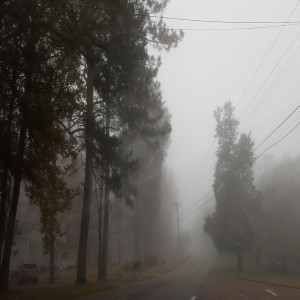
Monday Dec 03, 2018
20 - Not Every Day is Foggy
Monday Dec 03, 2018
Monday Dec 03, 2018
TRANSCRIPT
Hi everybody, and thanks again for joining me on Lessons from Life. I’m Mary Young.
If you remember, last week we talked about how the emotional healing journey might be confusing, maybe even nerve-wracking. I compared it to driving in fog, and that’s probably nobody’s favorite travel experience. I don’t want to scare you away from the healing journey by describing it as a foggy drive, but one of the reasons I like that analogy is because even when you’re on a foggy drive it’s not always foggy.
Read the rest of this entry »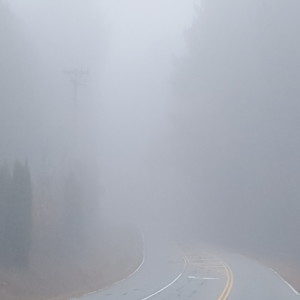
Monday Nov 26, 2018
19 - Foggy Days
Monday Nov 26, 2018
Monday Nov 26, 2018
TRANSCRIPT
I’ve spent this entire week thinking about how to follow up last week’s podcast. If you remember, last week we talked about the difference that can be made when you go through an emotional healing journey. And the next thought that came to mind was what does that journey look like.
I’ve said in the past that emotional healing is how we get to emotional health, and that that journey or that process is unique to each individual. What I mean by that is we each do things differently. My emotional healing journey is different from your emotional healing journey. There are similarities. There are things that are universal, but we are each unique individuals and therefore our actual journey, our actual process, is unique to ourselves. You can learn from what I’ve gone through. I can learn from what you’ve gone through, but the specific steps that I took may not be the right steps for you, because we are different people. With that in mind, I was trying really hard to figure out how to describe the journey...what metaphor, what analogy, could I find for the journey. And I have one that I think is perfect.
Read the rest of this entry »
Monday Nov 19, 2018
18 - What difference does it make?
Monday Nov 19, 2018
Monday Nov 19, 2018
TRANSCRIPT
I was working on a time-sensitive project at work, and in the room on the other side of the wall, the company owner and general manager were having a shouting match. It was all I could do to concentrate on my project. Their angry voices kept interrupting my concentration, and my “fight or flight” response was kicking in as I waited for the shouting match to escalate to violence. It never did, but it was all I could do to not run and hide as I listened to them. I didn’t feel like I was 32 years old. I felt like a little kid listening to her parents fight.
I huddled in the back corner of the closet, all lights off, hoping the clothes hanging above me and the laundry basket in front of me would keep me from being seen. It was the closest thing to a “safe room” that existed in my house. I pulled a blanket over my head hoping it would make me a shapeless lump, and not as easily recognizable as a human being. My stomach did flip flops, and in my mind I repeated endlessly “Don’t let them find me. Don’t let them find me.” I was 38 years old, but I felt like I was only 3 or 4, and that a monster was looking for me.
Read the rest of this entry »
Monday Nov 12, 2018
17 - What is Emotional Healing?
Monday Nov 12, 2018
Monday Nov 12, 2018
TRANSCRIPT
Last week, I was telling a friend of mine about the fact that I’m doing a podcast and that the podcast is about emotional healing. When I said that, my friend asked me a question that I don’t remember anybody ever asking me before. She said “what do you mean when you say emotional healing?” I didn’t have an answer, because every time I have said to somebody “I’m on an emotional healing journey,” or “I’m doing a podcast on emotional healing,” or “my next book is about emotional healing,” people just smile and nod, like they automatically know what I’m talking about.
Nobody has ever asked me before what do I mean when I say emotional healing, so I didn’t have an answer. And it’s actually kind of embarrassing. So I pondered it, and didn’t have an answer. I reached out to some friends of mine who have been on the same type of emotional healing journey that I’ve been on, recovering from childhood trauma, and I asked them “what does emotional healing mean to you?” They gave me some answers, and they gave me permission to share their answers, and that’s what we’re going to be talking about today.
Thanks ever so much for joining us on the Lessons from Life podcast. I’m Mary Young, and today were talking about what is emotional healing; what is emotional health; what does it mean; what does it look like. When I asked my friends what do they think of when they think of emotional healing or what does it mean to them, all of the answers I got were in writing, so I’m just going to read you what they said.
one friend said: “I think emotional healing happens when we come to terms with what has happened to us and then we allow ourselves to grow emotionally. . ie: I feel as though I have accepted what has happened to me and it no longer controls my thoughts and my life and I have become stronger when I am faced with situations that bring back my experiences. This is emotional healing. I may never be completely healed emotionally but it's a constant work in progress as I am a work in progress.”
Another friend said: I haven’t really processed that question fully but I can say that part of it is: My night terrors disappeared years ago.
There is less emotional knee-jerk reactions to things said or seen. I process a little differently now. But I still have times when I'll relive something. Whether it’s a 37yr old bad choice or reliving a horrible moment again. To me, emotional healing is a process that I'm constantly refining (in or for) my brain. It isn't so easy to trigger me anymore, but it’s not impossible.
and then my third friend that shared said: This is hard. I’ve started to type a response and stopped three times.
I keep wanting to compare it to a loss of someone or something and the stages that a person goes through. The death of a loved one or pet, surviving an accident, a war, losing your home or community. Some ppl get “stuck” in a phase, denial, anger, etc. Emotional healing is when you have allowed yourself to go through all of the emotional phases and come through on the other side intact. Not the same but healing. Things still trigger but not as often or are as painful hopefully.
So those are three answers from three survivors of childhood trauma, and they say basically the same thing that I was thinking. So I put all of that into my brain and let it percolate around, and came up with the following when I talk about emotional health or emotional healing, this is what I’m talking about.
Emotional health is being able to feel your emotions without being controlled by or ashamed of them, and being able to express those emotions appropriately.
Emotional healing is the process of getting there, and that process is unique to each individual.
I took that definition back to my friends and all three of them agreed that it sounded like what they meant. Being able to feel your emotions -- allowing yourself to feel your emotions -- without being controlled by or ashamed of them, and being able to express those emotions appropriately, and healing is the process of getting there. Again, that process is unique to everyone. The healing journey that I was, on the steps that I took -- yours will be different. There may be similarities, but we are not the same people, so there will be differences, and each one of us is unique, so our healing journey will be unique.
So that’s my definition of emotional health and the emotional healing journey. We’re going to be talking about that in more detail over the next few weeks, because how can you go on a healing journey if you don’t know what it looks like, or what you’re trying to accomplish? I will tell you this much, and I said it to my friend when she said “I still have healing to do, I will probably always be healing.” I told her that we think of healing the way we think of a broken bone or a cut. The cut scabs over; the scab falls off; you might have a scar depending, you might’ve had to get stitches depending, but you’re healed. The cut is no longer there. The bone mends, it knits back together, and you no longer have a broken bone. You are healthy again.
Emotional healing is not either/or. Either I’m emotionally healthy or I’m not. Emotional healing/emotional health is a continuum, and all along that continuum you need more healing. I needed more healing when I was 21. I needed more healing when I was 38 and went to therapy. I needed more healing when I was 40 and out of therapy. I needed more healing when I was 51 and went back to therapy. I needed more healing when I was 55 and thought I had crossed that bridge from the unhealthy to the healthy, before I realized it was a continuum. There will always be areas where I need to heal emotionally, and that’s just part of becoming a better version of me.
The difference is in 1998 and in 2011, the areas where I needed to heal were debilitating. They were keeping me from being able to function to my full capacity. Now, the areas where I need to heal are... I want to say normal and I know that’s not right, and I’m not trying to minimize, it but it’s more of an understanding myself. Why did I overreact to that statement, that kind of thing. I like the person that I have worked hard to become. I am a better version of me than I was before I started this healing journey. You can be a better version of you. You can find the you that you were meant to be, and that’s all I want.
I want me to be the best me that I can be. I want you to be the best you that you can be. And if understanding emotional healing and emotional health helps you get there, then please keep listening. Please keep reading the transcripts, because I’m gonna share what has worked for me, what my journey has looked like. And maybe you’ll find some value in that. If nothing else, you’ll know that you’re not alone. And that may be the most important thing to know. Because we always feel like we are the only person going through it.
You are not alone.
I am not alone.
Thanks for listening. I hope to see you again, and don’t forget to go make it a great week.
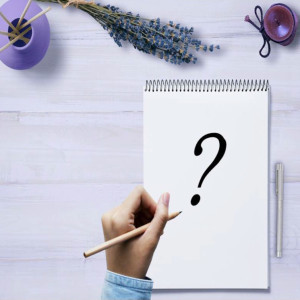
Monday Nov 05, 2018
16 - This Question can Change Your Life
Monday Nov 05, 2018
Monday Nov 05, 2018
TRANSCRIPT
I’ve got a question for you. When you’re going someplace, especially someplace you’ve never been before, how do you find it? Did somebody give you directions? Maybe somebody texted or emailed you directions turn by turn. Back in the day, did you pull out a map or map book and plot your directions?
I remember back in 1969, our family took a vacation from Ohio to St. Louis. My mom contacted AAA and got two or three -- I think they’re called trip books -- and she used those to plan the trip. They had information about every state that we were going be going through. Things that we could stop and see along the way, campsites, all kinds of stuff. We knew that we wanted to visit family in Illinois. Everything after that was up for grabs.
She used those trip books, and she planned our trip to get from Ohio to Illinois to St. Louis, and all the way back home. And it worked, because she researched, and because she planned. Today I’m sure you can still contact AAA and get trip books, but I don’t know anybody who would, because we have the Internet. And we have cell phones and smart phones, and every smart phone has a GPS app so we’re good to go. All you have to do is program in the address you want to go to, or the location you want to go to, and it gives you turn by turn directions. You can’t get lost.
And that’s great, if all you’re worried about is going from point A to point B in some geographic location. What if you’re talking about your career? “What do you want to be when you grow up” is a question that we’re always asked.
Read the rest of this entry »
Monday Oct 29, 2018
15 - In the Weeds?
Monday Oct 29, 2018
Monday Oct 29, 2018
TRANSCRIPT
In January 1999, I started seeing my first therapist. I worked with her for a couple years. My friends told me there was a night and day difference between who I was before I started therapy - how I seemed - and after I started therapy.
And I felt different. Stuff wasn't driving me crazy anymore. I wasn't having flashbacks any more from my childhood trauma, so I figured I was healed. I went on my happy way. I was stable. I was more successful than I had ever been. More confident than I had ever been. I was like “wow, this therapy stuff really works. This is good!”
And about 10 years went by, and then suddenly – well gradually -- I started to change. And it started to feel more like it had before I first started going to therapy, and I was so frustrated by that, because I was healed. What was this doing cropping up again? What was going on?
Read the rest of this entry »

